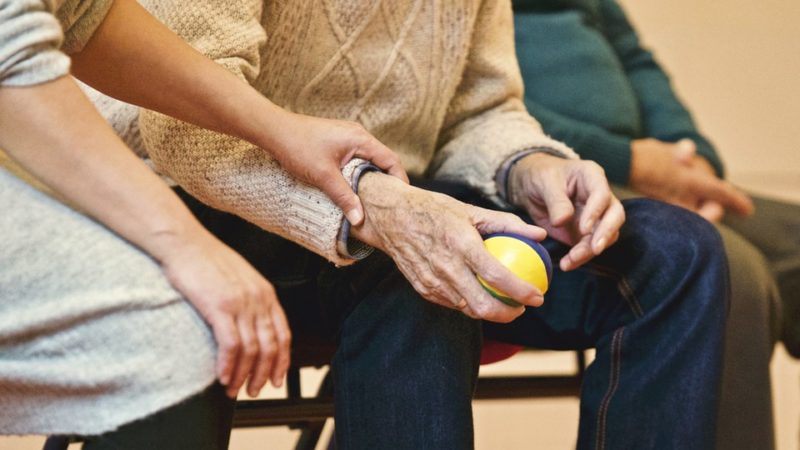If you're diagnosed with cancer you're looked after. Why not when you get dementia?

Nye Bevan once remarked that “no society can legitimately call itself civilised if a sick person is denied medical aid because of lack of means”.
In the post-war Labour Government, Bevan turned his powerful rhetoric into action.
The National Health Service Act was implemented in 1948, establishing the NHS, a beacon of the welfare state which has transformed the lives of countless British citizens.
The NHS remains a beloved institution to this day and at its heart is the underlying principle that health and wellbeing should never be denied to people on the basis of their wealth.
Sadly, this principle has not been applied to the social care system. Despite being created alongside the NHS, the modern social care system was never designed to be universal, but instead, means-tested, whereby those who could afford to pay would make their own contributions.
Over the years, the health and social care system have drifted further apart.
The boundaries between the services have been blurred, resulting in a fragmented and uncoordinated system, incapable of addressing the demands of an ageing population with increasingly complex care needs.
The challenges facing social care have been compounded by a persistent shortfall in funding.
Local authorities responsible for delivering care have been forced to cut back on services.
This has constantly shifted the goalposts in terms of who is entitled to state support and created regional disparities. The consequences of this are felt across society.
Vulnerable adults in need of care face unexpected shocks placing huge financial anxiety on to them and their families.
Loved ones drop from the workforce to take up emotionally challenging caring responsibilities.
Many go without care. Their conditions don’t improve, and their deterioration eventually leads them to depend on costly NHS treatment.
The impact of an inadequate social care system ripples through society and the health system, creating huge inefficiencies and inequalities.
Embedding the principle of free care at the point of need into the social care system would be a radical, but positive step in achieving a better health and care service.
Extending the boundaries of the NHS would end the travesty of vulnerable adults going without care and support.
If a person is diagnosed with cancer, the current system would take care of all aspects of care without their wealth ever coming into question. The same cannot be said for those diagnosed with dementia.
In both cases, the risks are shared across society. It is time that the responsibility for dealing with these risks is also shared.
The cost of achieving free personal care must also be acknowledged.
A new report from the Institute for Public Policy Research (IPPR) calls for free personal care and suggests that it would require an additional £19 billion more to deliver by 2030.
For 1% of total government spending, free personal care is an affordable and achievable ambition.
This guarantees that not a single person reading this will ever be in a situation where they or a loved one must ever worry about whether or not they will receive care should they ever be in need. It will be guaranteed by the same social contract which has formed the foundation of the NHS.
Few politicians can claim to have had the impact that Nye Bevan achieved during his brief time in office. The enduring vision of a society that protects the vulnerable remains as strong today as it did then. For the sake of a cohesive health system which delivers universal care to any member of society, it is time that the principal of free care at the point of need is adopted by the social care system.
Dean Hochlaf is a ‘work and the welfare state’ researcher at the Institue for Public Policy Research think-tank.
Left Foot Forward doesn't have the backing of big business or billionaires. We rely on the kind and generous support of ordinary people like you.
You can support hard-hitting journalism that holds the right to account, provides a forum for debate among progressives, and covers the stories the rest of the media ignore. Donate today.




5 Responses to “IPPR: Social care should be free”
Tom Sacold
Labour should have a clear policy of putting the care of those with dementia under the NHS and not local authority care services.
nshgp
So who is going to supply the housing, the staff, the medicines at zero cost?
Anthony Lamb
All social services should be free at point of use, just as the NHS is. If that means we have to pay higher taxes that is acceptable
Tom Sacold
Why are we still providing foreign aid to India & Pakistan when both countries can afford to spend billions on nuclear weapons and space technology?
Let’s redirect that money for the care of our own pensioners !!!
Patrick Newman
Social care free at the point of use is the most rational way of caring for people in need and it is also serving the improvement of national productivity as increasingly many relatives are having to restrict their careers to care for their relatives.